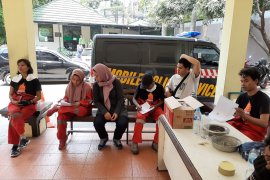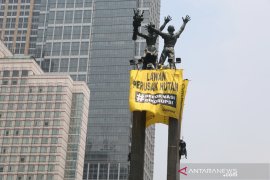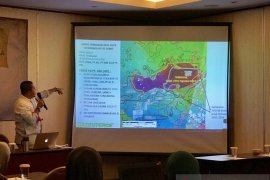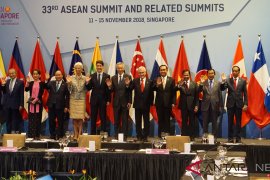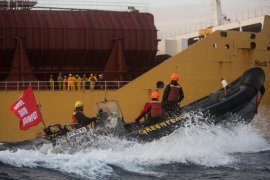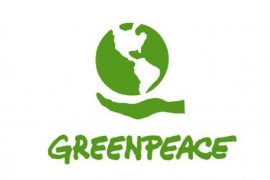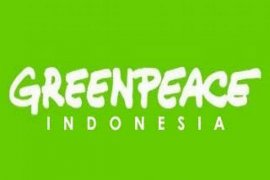
Greenpeace's message to Indonesia's presidential candidates
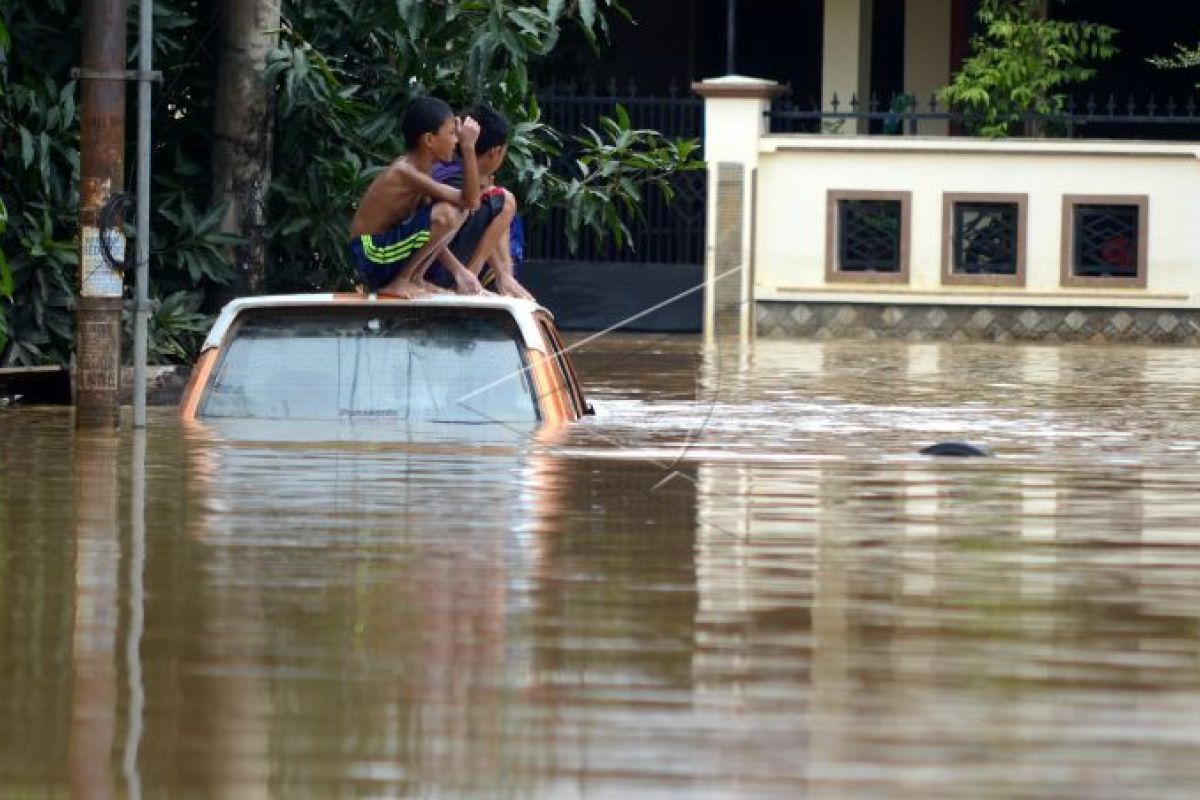
Bogor, W Java (Antaranews Lampung) - The second round of Indonesia's presidential debate focusing on the issues of food, energy, infrastructure, environment and natural sources had been conducted at Sultan Hotel in Jakarta on Sunday evening.
In general, incumbent President Joko Widodo and his contender Prabowo Subianto had showcased their better performance than in the first round of debate, as well as differences and similarities of their strategies in responding to the debated issues.
Regarding the issues of environment, energy, and food, Greenpeace Indonesia highlighted several crucial points that the two presidential candidates failed to raise during their open debate.
Among the tremendeous environmental issues that Indonesia has been facing, but the two presidential candidates did not present and discuss were those related to the real threats of climate change and plastic waste.
This environmental watchdog tweeted in its official social media platform that both Joko Widodo (Jokowi) and Prabowo Subianto did not even mention the word "climate change" though it has been perceived as this century's biggest threat on earth and humanbeing.
"This is sad!" Greenpeace Indonesia wrote in its official Twitter https://twitter.com/greenpeaceid.
In fact, according to Greenpeace Indonesia, such events as extreme weather, floods, droughts, storms, whirlwinds, and heat waves are often linked to climate change.
Over the past few decades, many areas in Indonesia have been prone to such natural disasters as floods, droughts, and whirlwinds.
Last January, for instance, floods inundated certain areas of Gowa, Makassar, Maros, Pangkep and Barru Districts in South Sulawesi Province, bringing about casualties and damages of paddy fields.
In Gowa alone, the death toll in flooding and landslides that hit certain areas of the district reached at least 29 while the South Sulawesi provincial government's food security and horticultural office noted that the floods, inundating five districts affected 13,792 hectares of paddy fields.
Besides neglecting the climate change-related issues, the two presidential candidates also ignored the importance of plastic waste as part of crucial environmental problems in Indonesia during their bitter debate.
In Greenpeace Indonesia's point of view, the plastic waste-related problem has reached an alarming point, and the Jokowi administration has actually pledged to reduce Indonesia's marine debris up to 70 percent in 2025.
The significance of this plastic waste-related problem has even been admitted by Environment and Forestry Minister Siti Nurbaya, saying that some 9.8 billion plastic bags are used in Indonesia every year, and almost 95 percent of it will end up as waste.
The ministry's waste management directorate also estimated that the total number plastic straws, used by Indonesians every day, reaches some 93 million, increasing from nine percent in 1995 to 16 percent in 2018.
As the world's largest archipelagic state situated between two oceans, Indonesia is viewed by the Indonesian Foreign Ministry's Director General for ASEAN Cooperation Jose Tavares as a "meeting point" of the movement of trans-border pollutants.
In connection with the energy issue, Greenpeace Indonesia also regretted the two Indonesian presidential candidates' support for developing 20 percent blended biodiesel (B20) fuel without guaranteeing environmental sustainability.
In Chief of Greenpeace Indonesia Leonard Simanjuntak's point of view, both Jokowi and his contender failed to show their commitment to guarantee that the B20 fuel program would not harm the country's tropical forests, peatlands, and mangroves.
In an endeavor to create energy security, the two presidential candidates relied on crude palm oil instead of promoting the renewable energy that Indonesia has the huge potential sources of it.
Greenpeace Indonesia was concerned by the two presidential candidates' emphasis on the use of crude palm oil for developing biofuels, because it potentially contributed to an increasing rate of deforestation, Simanjuntak argued.
Quoting the data analysis of Hansen from the University of Maryland (2000-2017), the deforestation rate of 2015 and 2017 was recorded at 650 thousand hectares. The imposition of biofuel policy has created a demand for 10.7 million tons of palm oil.
In 2030, the demand for biofuel is expected to reach around 67 million tons. This condition was feared to create new deforestation rate of around 4.5 million hectares and destruction of 2.9 million hectares of peatland, Simanjuntak revealed.
These Greenpeace Indonesia's critical notes on Jokowi-Prabowo's second debate need to be accepted by them as a constructive input for making Indonesia better.
Whoever wins the 2019 Presidential Elections, due to be held on April 17, he is committed to bring justice, peace, and prosperity for the entire nation through the implementation of an environmental sustainable development strategy.
Pewarta : Rahmad Nasution
Editor:
Hisar Sitanggang
COPYRIGHT © ANTARA 2026


